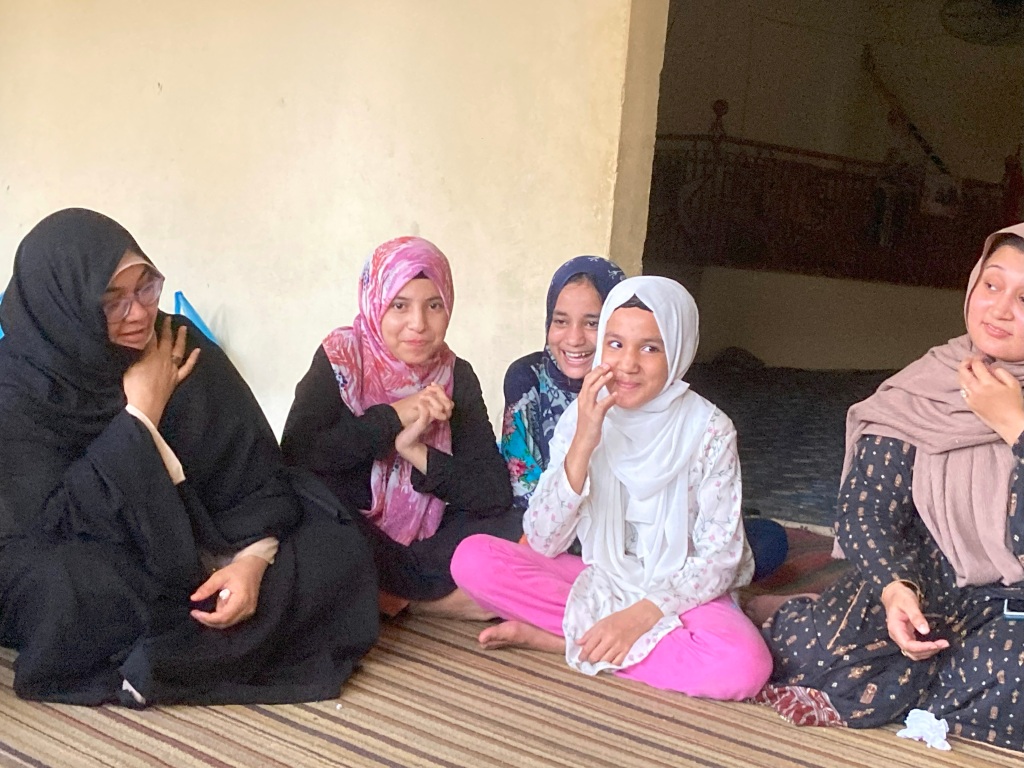The outcome was not a surprise, but we had to work at multiple levels for eveyone else to experience and engage in the process. Sajida, Zeenat and the ICAN team went to two disadvantaged areas of Karachi and invited eventually 11 family units of three generations (grandmothers, mothers, young people) to act as advisers. The concept did not mean anything at the beginning, as they had probably never been asked before, but they used it more and more as the project went on. They had to be valued before accepting the role.
At the same time, 14 young peer educators took on the responsibility of driving the project. In phase 1, reported in this paper, they utilised training and workshops with the family advisers to design the mental health promotion programme. This part of the journey was the most innovative in seeing peer educators’ interactions with families, and how the two groups floursihed in parallel and together.
The first family consultation workshop was probably the most important, as everyone was tentative and there were several pre-conceptions to work through – “grandmothers might not engage, families might feel intimidated, not likely to share, coming from conservative communities”, and so on. All potentially true of course, but none happened. Every step was anticipated, peer educators made families feel comfortable, and the rest was fun – grandmothers, in particular, loved it!
There were two more, not insubstantive steps, in peer educators repeating the consultation workshops in the families’ communities, then passing by them the final questions about the design of the programme – here is the link to the paper:
https://doi.org/10.1093/heapro/daae010

